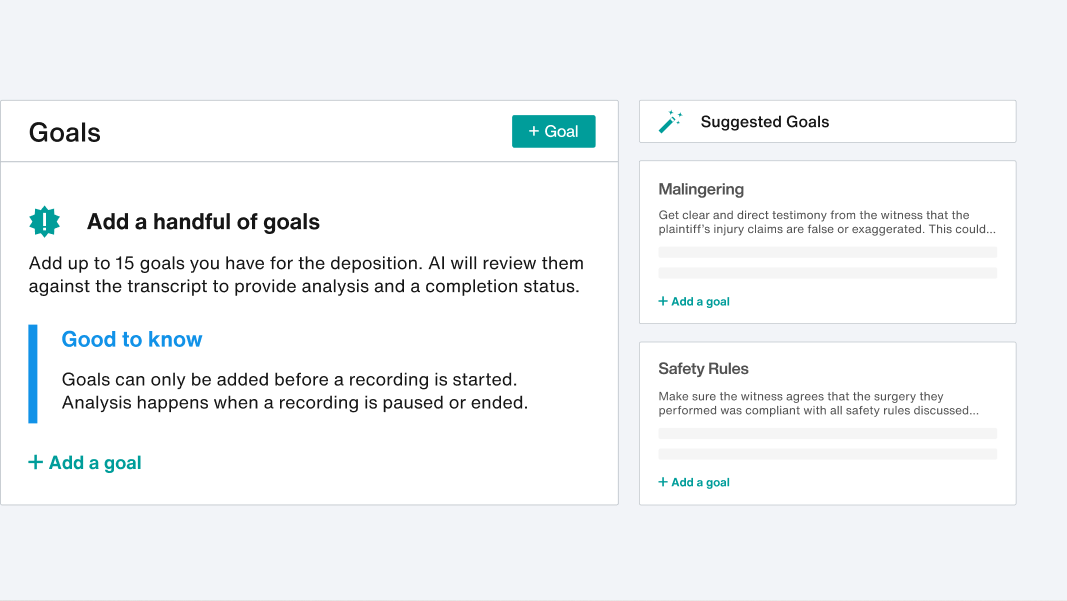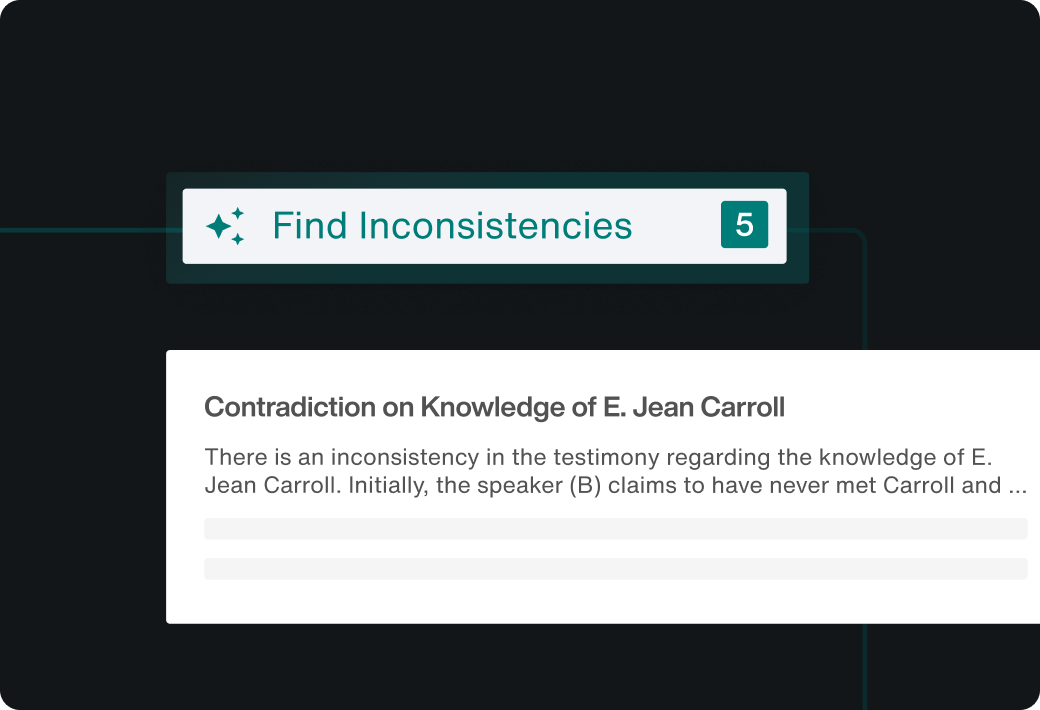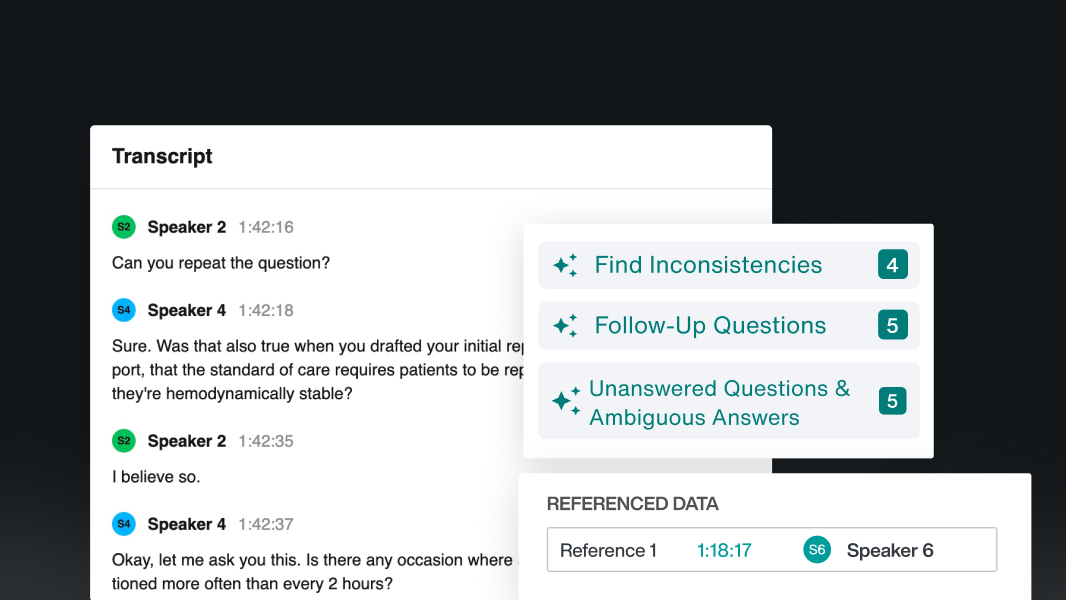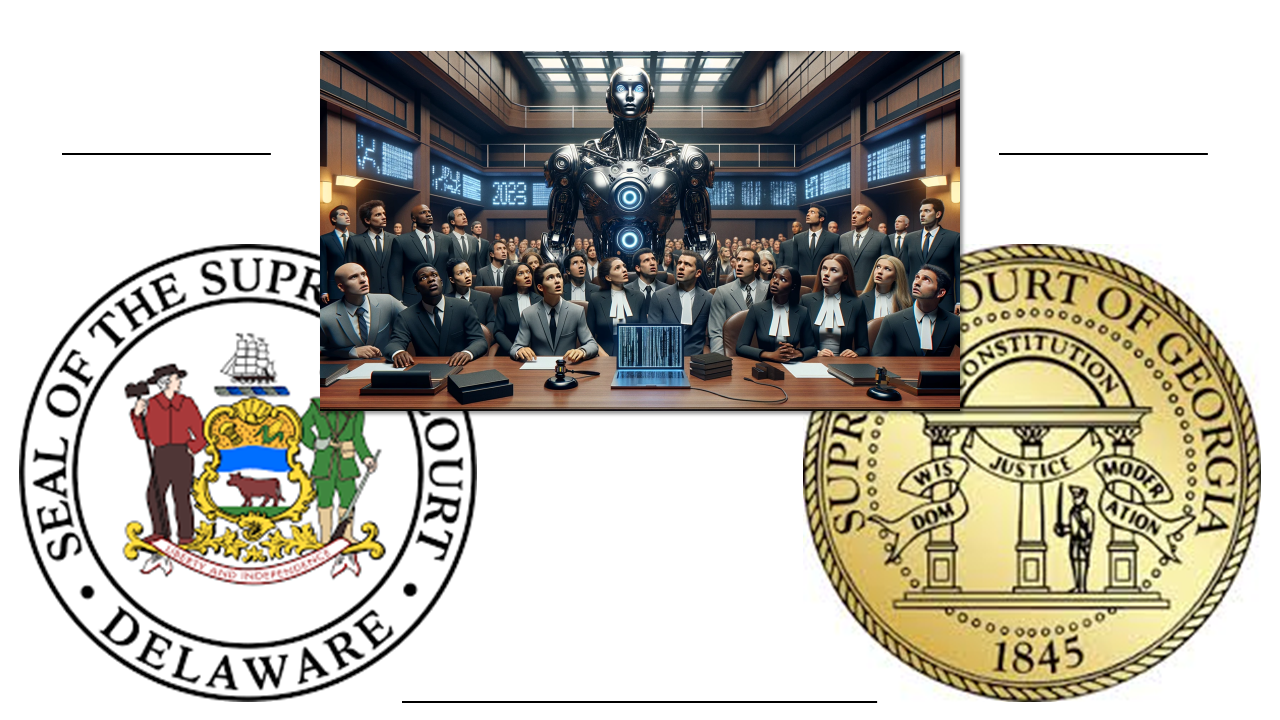It’s
not
just
you:
every
lawyer
is
stressed
about
depositions.
You
have
one
chance
to
capture
the
testimony
that
could
make
or
break
your
case.
You
have
to
digest
a
mountain
of
research
and
set
out
clear
goals.
But
you
also
have
to
think
on
your
feet,
consider
how
each
moment
will
feel
in
written
form,
and
pivot
to
new
opportunities
as
they
arise.
And
often
you
have
to
do
all
of
this
for
hours.
Anxiety
can
eat
at
you
before,
during,
and
after
a
deposition.
And
even
worse,
deposition
mistakes
can
draw
out
litigation,
sour
settlement
talks,
or
generally
damage
case
outcomes.
Depositions
are
some
of
the
key
building
blocks
of
your
case.
If
they’re
weak
or
flawed,
the
whole
thing
can
fall
down.
What
can
you
do
to
make
each
one
as
strong
as
possible?
The
End
of
Post-Deposition
Dread
You
know
that
person
who
always
seems
like
the
smartest
attorney
in
the
room?
Usually
they’re
not
doing
it
alone.
They
just
have
the
right
talent
and
tools
at
their
disposal.
In
the
past,
this
has
meant
an
army
of
underlings
pouring
over
every
discovery
document
to
help
prepare
for
depositions
and
then
tirelessly
taking
notes
as
they
happen.
But
now
there’s
another
option,
and
it’s
one
that
can
be
used
by
any
lawyer,
not
just
the
top
brass:
AI-powered
legal
technology.
Depo
CoPilot
by
Filevine
harnesses
AI
to
help
you
nail
every
deposition.
It’s
designed
to
be
your
second
chair
throughout
the
process,
giving
you
better
insight,
greater
confidence,
and
superior
case
outcomes.
How
does
Depo
CoPilot
Work?
Write
up
your
goals
before
the
deposition.
During
the
process,
Depo
CoPilot
creates
a
real-time
transcript,
so
you
can
review
any
moment
from
the
testimony
right
away.

Beyond
that,
the
tool
tells
you
whether
you’ve
achieved
your
goals,
where
there
might
be
inconsistencies,
and
where
you
might
want
to
follow
up
with
more
questions.

Every
conclusion
is
linked
to
the
transcript.
You
don’t
have
to
trust
the
AI
—
you
can
see
for
yourself
what
the
record
shows.

Sign
up
for
a
Depo
CoPilot
demo
and
see
for
yourself
why
Joe
Patrice
with
Above
the
Law
called
Depo
CoPilot
“one
of
the
best
use
cases
for
generative
AI
in
legal.”
“Even
an
AI
skeptic
would
be
hard
pressed
to
dismiss
the
idea
of
a
guardian
robot
monitoring
the
transcript
and
providing
real-time
feedback
based
on
your
guidance,”
wrote
Patrice.
Whether
you’re
a
skeptic
or
not,
give
Depo
CoPilot
a
try
and
see
how
it
feels
to
have
cutting-edge
technology
laser-focused
on
helping
you
perform
your
very
best
at
every
deposition.

















